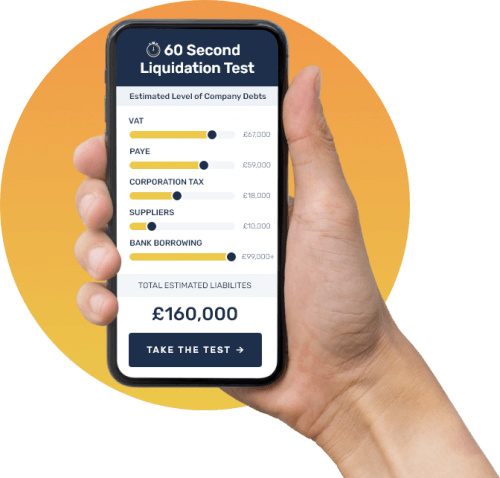What role do directors play and what are the risks?
If your company is entering Liquidation, either voluntarily or through action taken by a creditor, it pays to know what the process has in store. Your role in the company will change dramatically. Rather than making the decisions, the Insolvency Practitioner who acts as the liquidator will take control of the business.
They will expect you to assist them and provide all the information they need to facilitate the Liquidation process. If you fail to comply with the liquidator, they can apply to the court to compel you to hand over information relating to company assets and liabilities. In extreme cases, if you continue to withhold information, the court also has the power to issue a warrant for your arrest.
What does liquidation mean for me as a company director?
Liquidation is a process for closing solvent or insolvent limited companies. Bringing an end to your business can be a worrying time, particularly if your company has debts. However, for most company directors, Liquidation is a straightforward and necessary process that allows you to move on to something new.
If your business is solvent, a Members’ Voluntary Liquidation (MVL) allows you to extract the value from the company in a tax-efficient way. In an insolvent Liquidation, known as a Creditors’ Voluntary Liquidation (CVL), the liquidator will repay your creditors in a defined order and any remaining debts will be written off.
If you have worked at least 16 hours a week and were continuously employed by the company for at least two years, you could also be eligible for director’s redundancy pay. That can provide a financial lifeline while you consider what’s next.
What does the Liquidation process involve?
Company Liquidation is the process of closing a business and distributing its assets to its creditors and shareholders. It’s not something you can do yourself. By law, you must appoint an Insolvency Practitioner to act as the liquidator and manage the process on your behalf.
The liquidator will take control of the company, cease trading and settle any outstanding contracts. They’ll also invite claims from those who are owed money by the company (its creditors). They then value and sell the company’s assets and distribute the proceeds to its shareholders (if it’s solvent) or its creditors (if it’s insolvent) before closing the company down.
If your company is insolvent, the liquidator will investigate your actions as a company director. If they find any evidence of wrongdoing in the period leading up to the insolvency, you could be made personally liable for some or all of the company’s debts and even be disqualified from acting as a company director for up to 15 years.
What role do company directors have in the Liquidation process?
If you enter insolvent Liquidation, your responsibilities start as soon as you are aware - or should be aware - that the company is insolvent. At that point, you must act in the best interests of your creditors, which usually means ceasing trading immediately and getting professional advice from a licensed Insolvency Practitioner.
If you liquidate the company voluntarily, you are responsible for calling a shareholder’s meeting to put the company into Liquidation and appointing an Insolvency Practitioner to act as the liquidator. Once the procedure begins, you are legally obliged to cooperate with the liquidator and comply with their requests in the following ways:
- Handing over company records, paperwork and details of company assets
You must give the liquidator access to any company information they ask for. They will want to see full details of the company’s assets at the date of Liquidation, its books and company records. That’s likely to include bank account details, an up-to-date balance sheet, sales and purchase ledgers, personnel records, VAT and Corporation Tax records, company contracts and details of all the company’s creditors.
- Completing a post-insolvency questionnaire
As part of a fact-finding process, the liquidator will send you and other company directors a questionnaire about the circumstances leading up to the company’s insolvency. The questionnaire will include anything from 30 to 70 questions and will look to establish your role and whether there are any grounds to bring claims against you.
- Attending an interview
You may also be asked to attend an interview with the liquidator if they want more details about why the business became insolvent or further information about business dealings, affairs and assets. If you fail to attend the interview or refuse to answer the liquidator’s questions, further action could be taken against you.
What are the risks for directors when a company is liquidated
As part of the insolvent Liquidation process, the liquidator must file a report with the Insolvency Service regarding the conduct of the directors. That report will be based on the information you provide in the initial questionnaire and interview, evidence from other stakeholders and the details contained within the company records. Based on the liquidator’s findings, the Insolvency Service will decide whether to pursue the matter through the civil court.
These are examples of the sort of misconduct the liquidator will look for:
- Wrongful trading - You continued to trade when you knew the company was insolvent and worsened the creditors’ positions as a result.
- Fraudulent trading - You carried on the business with the intent of defrauding or deceiving your creditors.
- Transactions at undervalue - You sold assets in the period leading up to the business’s insolvency for less than their true value.
- Preferential payments - You made payments to some creditors and not others, for example, you repaid a loan from a family member but ignored tax debts.
If the liquidator uncovers any of the above, they can take action to recover money from you personally for the benefit of the company’s creditors. You could also be disqualified from acting as a company director for up to 15 years, or in the case of fraudulent trading, receive a maximum two-year prison sentence.
Can I run another company after Liquidation?
Yes, as long as the liquidator’s investigation doesn’t uncover anything that could lead to a ban, there’s nothing to stop you from setting up a new company or continuing to trade an existing company.
Something to be aware of are the restrictions around business names. You cannot set up a new company with the same or a similar name as the liquidated business for five years. If you do, it could lead to criminal action or personal liability issues if the new company subsequently becomes insolvent.
Will Company Liquidation affect my credit record?
Thanks to the incorporation process, a limited company and the people behind it are separate legal entities. Therefore, none of the judgements that are made against the company will appear on your credit record and you will be unaffected.
The only way Company Liquidation can impact your credit record is if you sign a personal guarantee for business borrowing or you are made personally liable for company debts. In that case, any legal action taken against you to enforce the payment will appear on your credit record.
Need advice?
At UK Liquidators, we provide free initial advice to help you understand every aspect of the Liquidation process and protect your personal position. Contact our team for a same-day consultation or arrange a meeting at one of our local offices.
If you are considering liquidation for your limited company, taking advice from a licensed insolvency practitioner can help you understand your options.
Take our 60 second test and find out







































